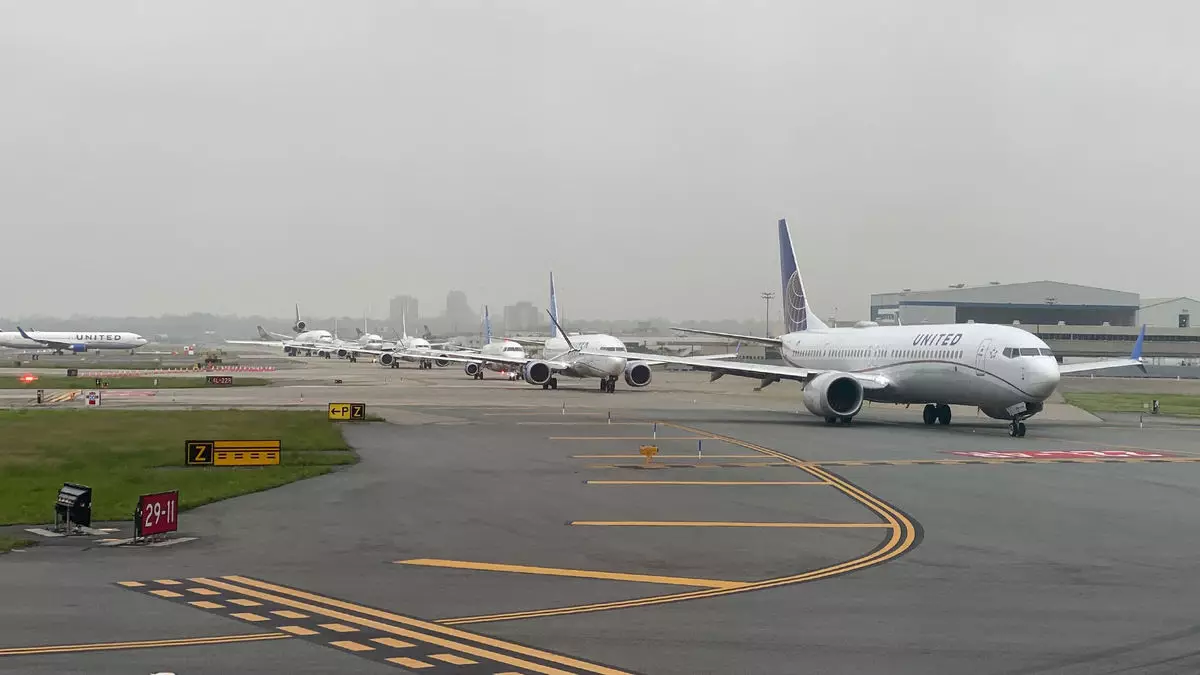The air travel industry is currently experiencing a seismic shift, particularly in New Jersey, where Newark Liberty International Airport has become a hotbed of operational issues, leading many seasoned travelers to reconsider their flying habits. Recent events have cast a shadow over what was once considered a reliable gateway to the skies. With flight cancellations, delays, and traffic control failures becoming common occurrences, travelers are turning to their advisors for guidance. It’s a volatile environment, but amid the chaos lies an opportunity for travel professionals to shine as trusted navigators through troubled waters.
For travel advisors like Rick Ardis of Ardis Travel, the stakes are higher than ever. Scheduled to attend the ASTA Travel Advisor Conference, Ardis was quick to adapt his plans by driving to Lehigh Valley Airport instead of flying out of Newark. This decision not only spared him from the waves of cancellations but also showcased the adaptability that the current climate demands. His proactive approach reinforces the message that remaining flexible is key in an industry riddled with uncertainty.
Understanding Traveler Concerns
Advisors like Parri Mahan and Melissa Sanchez highlight a noteworthy trend: while many clients are apprehensive about flying from Newark, they often prefer the convenience of the airport over lengthy commutes to other regional locations like LaGuardia or JFK. The logistics of air travel are not just about flights and schedules; they also encompass the entire experience, which includes the burdens of traffic and additional travel time. In this context, Newark still holds a significant appeal, even as operational issues mount.
The recent air traffic control outage in Philadelphia, which affected operations in Newark, serves as a vital touchpoint in understanding traveler anxiety. Many are left wondering about the reliability of their chosen flight paths, prompting questions about the implications of operational cutbacks. Travel advisors, often the front-line communicators in these situations, are inundated with inquiries from clients seeking clarity. This dynamic creates a unique pressure for advisors: to remain well-informed and to provide reassurance to those navigating the uncertainty of modern air travel.
Advising Amidst the Turmoil
As travel advisors maintain their roles as comprehensive guides through the challenges of air travel, their strategic insights become invaluable. For example, Mahan has been able to alleviate concerns for clients flying to Europe by emphasizing that transatlantic flights remain largely stable, despite the turmoil affecting domestic services. Providing clients with knowledge of their rights under EU regulations regarding flight cancellations—information that might otherwise go unnoticed—empowers travelers to feel more secure in their plans.
Beyond reassurance, advisors are finding creative ways to mitigate the frustrations of their clients. Ardis’s intervention on behalf of a client whose flight was canceled is a perfect illustration of the added value that travel advisors bring to the table. By stepping in to secure an improved itinerary, complete with an upgrade, Ardis not only solved a problem but transformed the client’s experience into something positive and memorable. In an environment where airlines automatically rebook passengers onto less desirable options, such proactive measures enhance the reputation of travel advisors.
Adapting to Client Preferences
Despite the challenges, a segment of the traveling population is choosing to pivot away from Newark. The realization that there are alternatives—albeit inconvenient—has sparked a trend of exploration toward other airports in pursuit of ease and peace of mind. Clients facing tight schedules are particularly motivated to seek new routes as they strive to avoid potential delays and disruptions.
This evolving landscape calls for travel advisors to remain agile and responsive. Smith’s decision to rebook clients heading to Cancun from Philadelphia reflects an acute awareness of the shifting preferences of travelers. The willingness of some to seek alternatives, even if it means more effort on their part, speaks volumes about the current sentiment surrounding air travel.
The Advisor’s Role in a Complex Environment
The travel industry has always been a spectrum of possibilities, but today’s challenges amplify the critical role played by advisors. As cancellations and delays threaten to diminish the travel experience, advisors who remain vigilant and proactive can foster strong relationships with clients based on trust and reliability. The resilience shown by industry professionals in navigating these turbulent waters is testament to their commitment and expertise. It’s at this intersection of concern and convenience that travel advisors will find their true value—not just as facilitators of travel, but as essential partners in ensuring a smooth journey for all their clients.


Leave a Reply